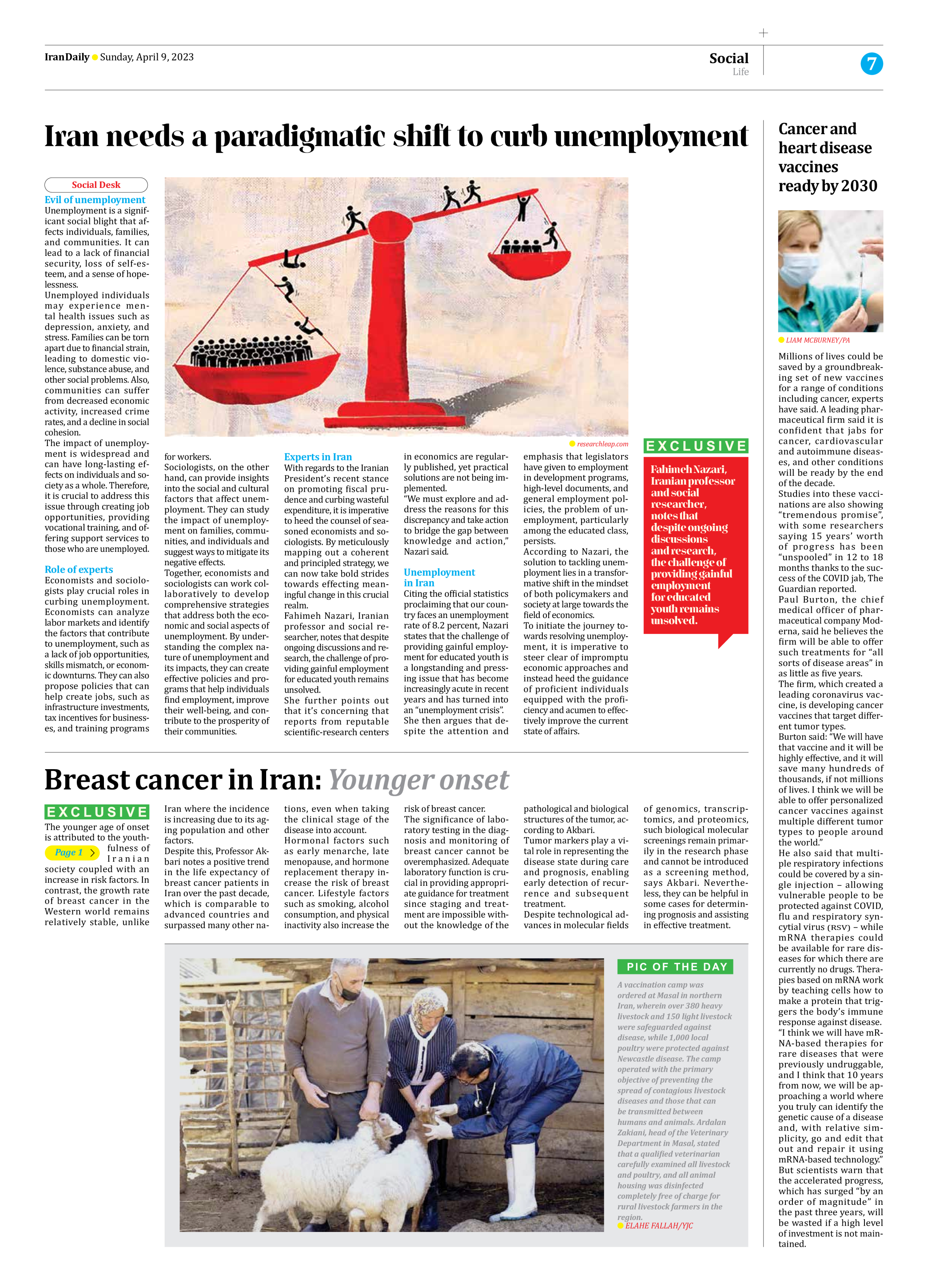
Breast cancer in Iran: Younger onset
Page 1
The younger age of onset is attributed to the youthfulness of Iranian society coupled with an increase in risk factors. In contrast, the growth rate of breast cancer in the Western world remains relatively stable, unlike Iran where the incidence is increasing due to its aging population and other factors.
Despite this, Professor Akbari notes a positive trend in the life expectancy of breast cancer patients in Iran over the past decade, which is comparable to advanced countries and surpassed many other nations, even when taking the clinical stage of the disease into account.
Hormonal factors such as early menarche, late menopause, and hormone replacement therapy increase the risk of breast cancer. Lifestyle factors such as smoking, alcohol consumption, and physical inactivity also increase the risk of breast cancer.
The significance of laboratory testing in the diagnosis and monitoring of breast cancer cannot be overemphasized. Adequate laboratory function is crucial in providing appropriate guidance for treatment since staging and treatment are impossible without the knowledge of the pathological and biological structures of the tumor, according to Akbari.
Tumor markers play a vital role in representing the disease state during care and prognosis, enabling early detection of recurrence and subsequent treatment.
Despite technological advances in molecular fields of genomics, transcriptomics, and proteomics, such biological molecular screenings remain primarily in the research phase and cannot be introduced as a screening method, says Akbari. Nevertheless, they can be helpful in some cases for determining prognosis and assisting in effective treatment.







